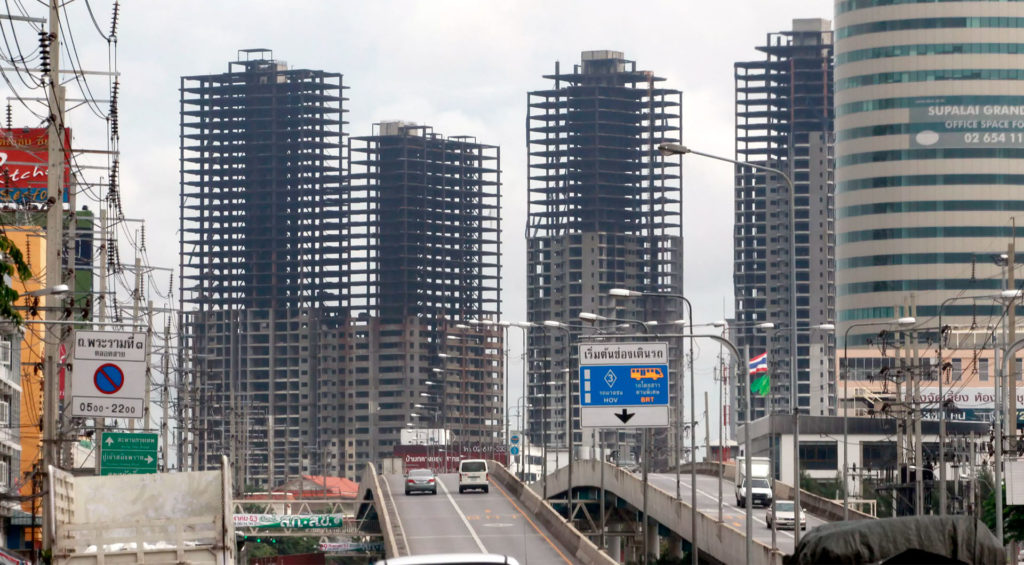05 Feb Thailand: Bank of Ayudhya forecasts 10% decline in new mortgages in 2019
New housing loans are expected to shrink by 10% this year, dragged by the central bank’s stringent mortgage lending rules and weaker condominium demand from Chinese buyers, says a senior executive at Bank of Ayudhya (BAY).
Both global and domestic factors are denting demand in residential real estate and new mortgages, said Nathapol Luepromchai, BAY’s executive vice-president and head of the mortgage division.
New mortgages expanded by double-digit rates in 2018, he said.
The Bank of Thailand’s new loan-to-value (LTV) ratio regulation for home loans, which will take effect in April, will dampen demand, Mr Nathapol said.
Brisk demand for new housing loans during the final two months last year, prompted by media reports on the central bank’s implementation of the stringent measures, are another cause for this year’s expected contraction in new mortgages, he said.
Condo demand from foreigners, especially Chinese buyers, has slowed over the past few years in line with economic circumstances, both globally and on the mainland.
The Chinese government’s amended regulations prevent people from transferring more than US$50 billion out of the mainland, taking a toll on the Thai property market, Mr Nathapol said.
Although new mortgages are expected to contract this year, loans outstanding continue to expand because of a larger loan portfolio, he said.
BAY, the country’s fifth-largest lender, targets low double-digit growth for mortgages outstanding this year, while new home loans will be flat or even down.
In 2018, the bank’s outstanding mortgages surged 15.1%.
Kattiya Indaravijaya, president of Kasikornbank, said KBank’s total mortgages are expected to rise 6-7% in 2019, slowing from solid growth of 11.8% last year.
The slower growth is based on lower condo demand from Chinese buyers, she said.
Housing loan growth in the banking sector is predicted at 5% this year, below 7% growth last year, Ms Kattiya said.
Weaker demand from Chinese buyers contributes to lower mortgage demand among those who buy Thai condos in bulk to resell to Chinese people and local buyers who purchase condos to rent out to Chinese tenants, she said.
The central bank’s new housing loan regulation, which requires higher down payments for second and subsequent mortgages, will also dent demand, Ms Kattiya said.
Predee Daochai, chairman of the Thai Bankers’ Association, said the weaker demand from Chinese condo buyers won’t deteriorate banks’ asset quality, given their strong risk management.
Foreigners typically use cash for condo purchases in the Thai market, Mr Predee said.
For property projects, banks normally extend credit options to financially robust property developers, most of them SET-listed companies, he said, noting that the central bank’s new LTV regulations also strengthen risk management and help control asset quality.
The central bank recently voiced concerns about the risk of weaker demand for condos from foreigners, Chinese buyers in particular, citing a global economic downturn.

